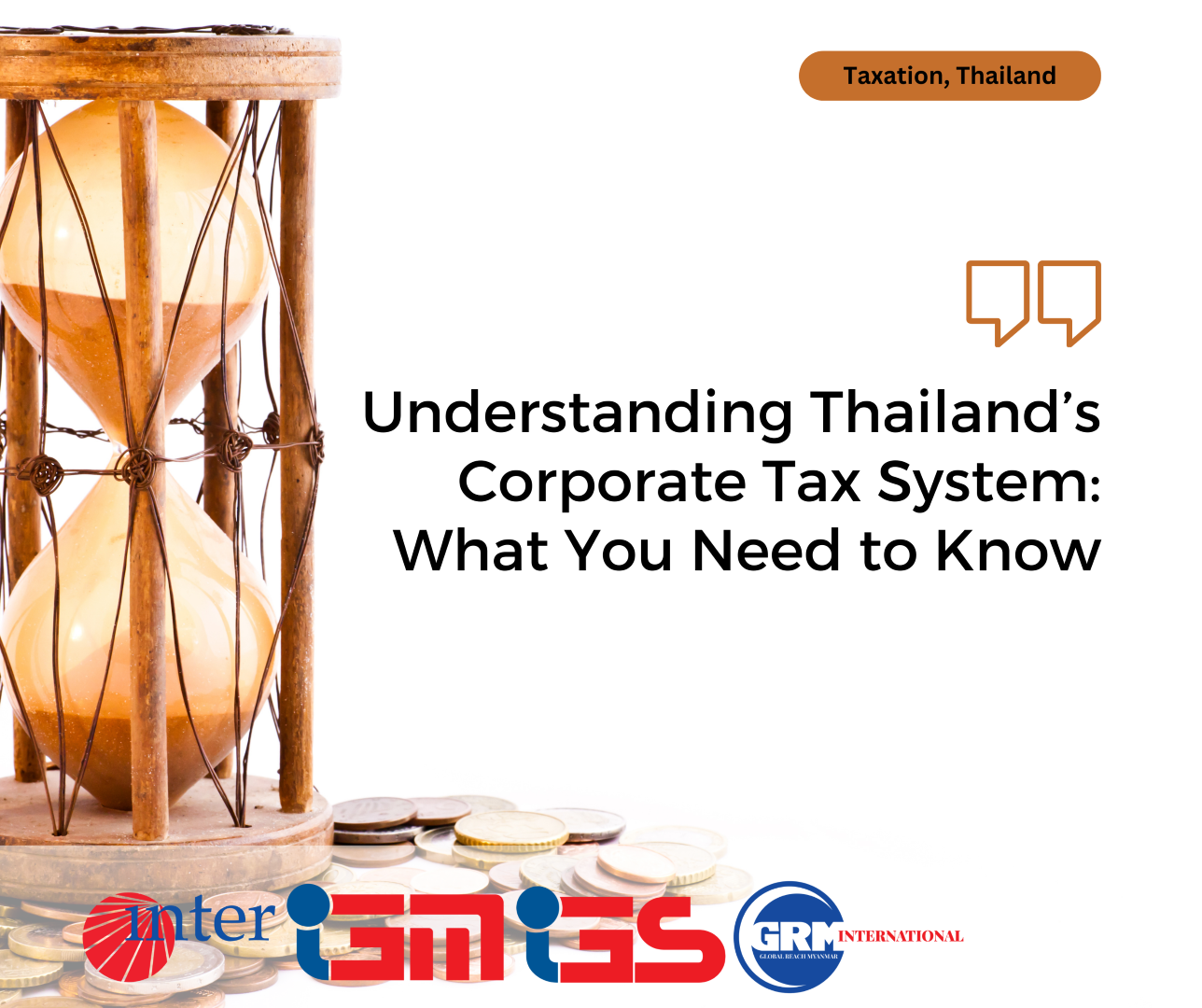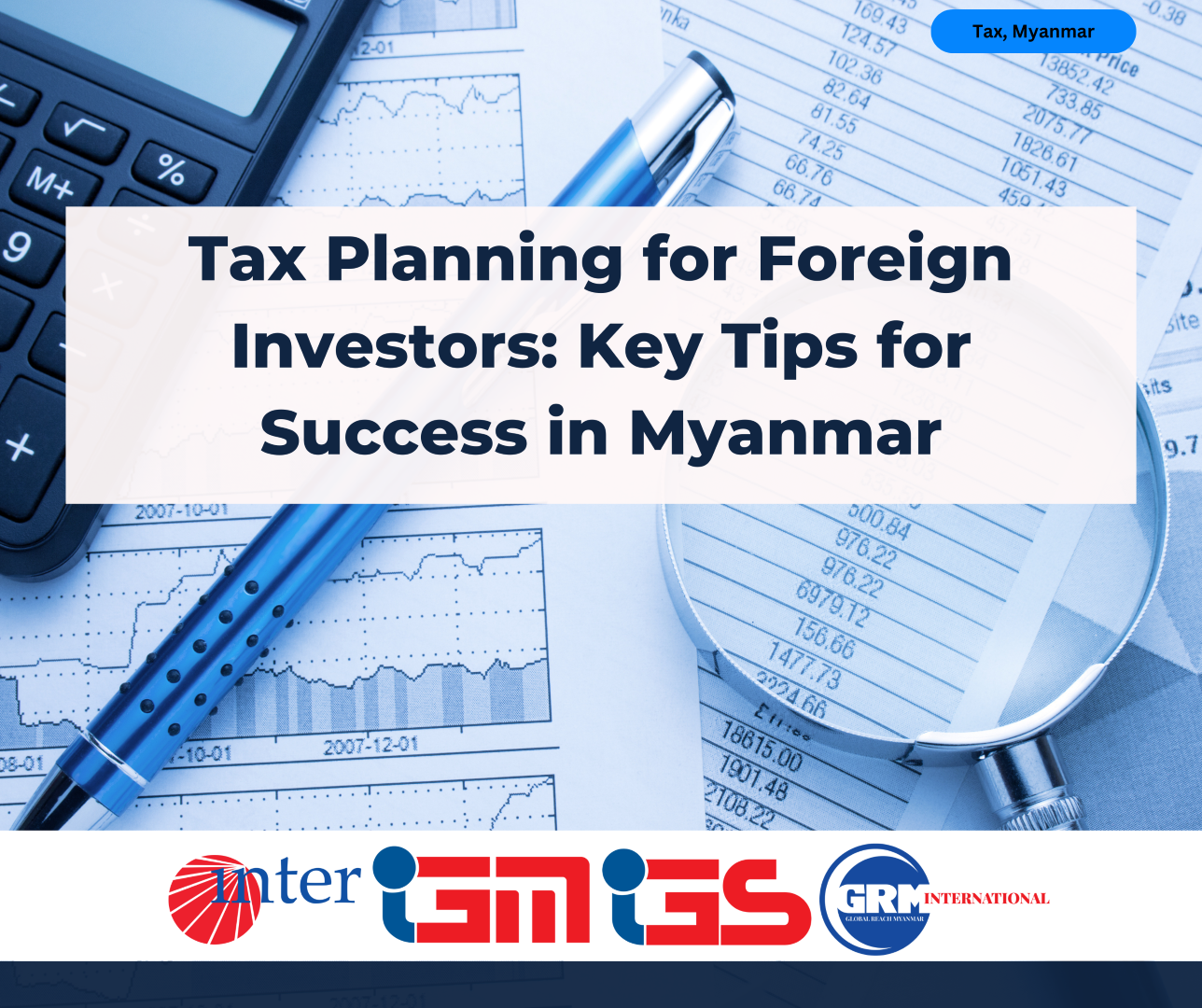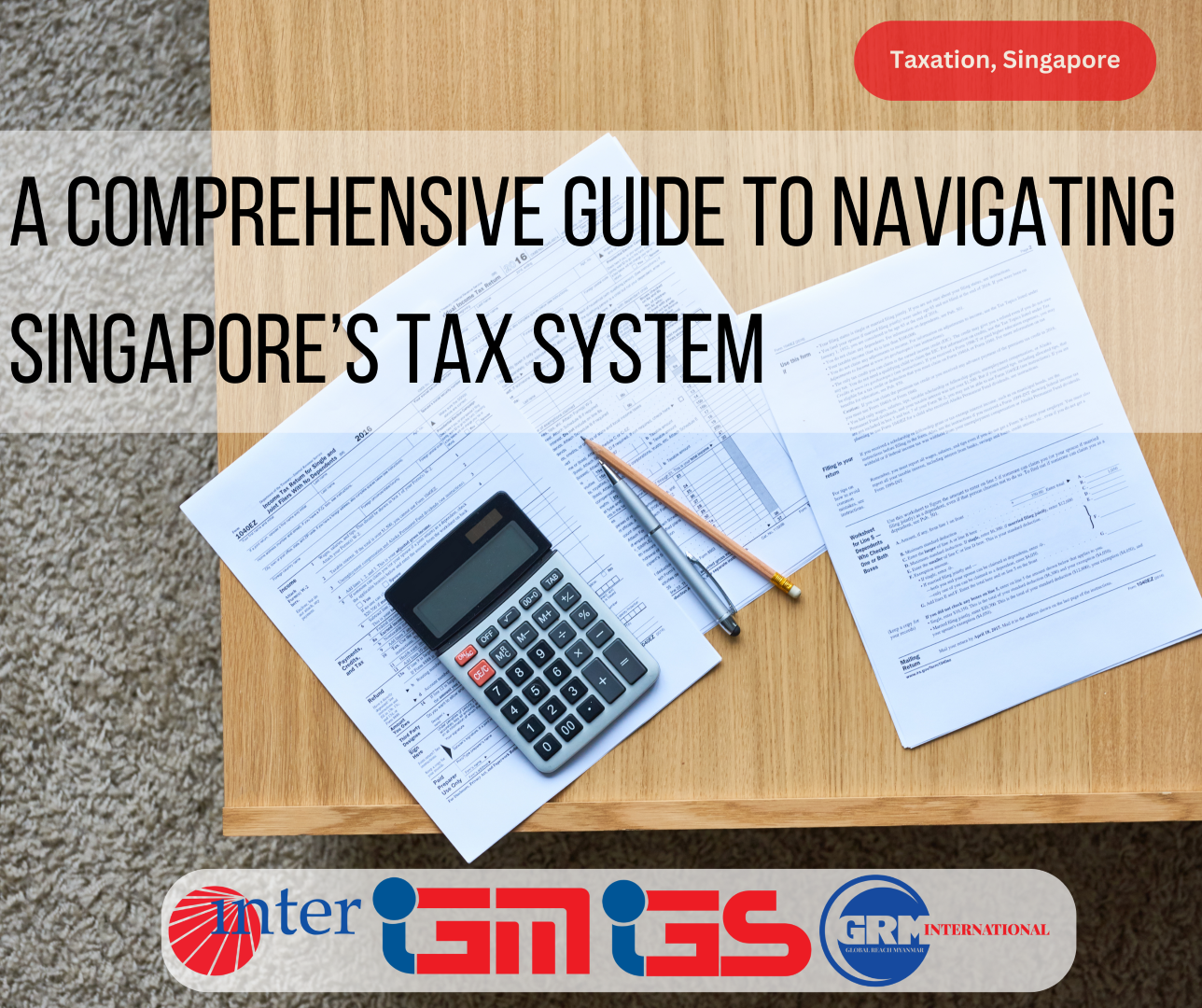
Understanding Thailand’s Corporate Tax System: What You Need to Know
Understanding Thailand’s Corporate Tax System: What You Need to Know
Thailand has emerged as one of the most attractive destinations for business expansion in Southeast Asia. With its strategic location, diverse economy, and growing market, many companies are looking to establish a presence in the Land of Smiles. However, understanding Thailand’s corporate tax system is crucial for anyone considering starting or expanding a business in this vibrant country. This blog will provide a comprehensive overview of Thailand’s corporate tax system, key considerations for businesses, and how Inter Group can assist you in navigating these regulations effectively.
- Overview of Thailand’s Corporate Tax System
Thailand operates a progressive tax system where corporate income tax (CIT) is levied on the net profits of companies. The tax system is governed by the Revenue Department of Thailand and is characterized by its clear regulations and various incentives designed to encourage foreign investment.
Key Features of Thailand’s Corporate Tax System:
- Territorial Tax System: Thailand follows a territorial taxation principle, meaning only income derived from sources within Thailand is subject to tax. Foreign-sourced income is generally exempt unless it is brought into Thailand.
- Corporate Income Tax Rate: The standard corporate income tax rate in Thailand is 20%. However, certain incentives and exemptions can lower the effective tax rate for qualifying businesses.
- Tax Residency: A company is considered a tax resident if it is incorporated in Thailand or if its place of effective management is in Thailand.
- Types of Corporate Taxes in Thailand
- Corporate Income Tax (CIT)
- Standard Rate: The corporate income tax is set at 20% of net profits. This applies to both Thai and foreign companies operating in Thailand.
- Small and Medium Enterprises (SMEs): SMEs may qualify for reduced tax rates and exemptions. Companies with paid-up capital not exceeding 5 million THB and net profits not exceeding 300,000 THB can benefit from a 15% tax rate on the first 300,000 THB of profits for the first 3 years of operation.
- Value Added Tax (VAT)
- Standard Rate: The standard VAT rate in Thailand is 7%. VAT is applicable to the sale of goods and services and can be claimed back by businesses registered for VAT.
- Exemptions: Certain goods and services, such as financial services, healthcare, and education, may be exempt from VAT.
- Specific Business Taxes (SBT)
Certain businesses, such as those involved in the sale of goods and services, are subject to specific taxes. For example, businesses engaged in the sale of property may be subject to transfer fees and business tax.
- Key Considerations for Businesses
- Compliance Requirements
Businesses operating in Thailand must adhere to strict compliance requirements:
- Filing Tax Returns: Companies must file annual corporate income tax returns (PND.50) within 150 days of the fiscal year-end. Additionally, monthly VAT returns must be filed within 15 days of the end of each month.
- Accounting Records: Proper accounting records must be maintained, reflecting all financial transactions. Businesses must also conduct annual audits if they meet certain criteria.
- Incentives and Tax Holidays
Thailand offers various incentives and tax holidays to attract foreign investment:
- BOI Promotion: The Board of Investment (BOI) offers incentives to qualifying businesses, such as tax holidays, reduced tax rates, and exemptions on imported goods.
- Investment Promotion Act: This act provides incentives for investment in targeted industries, including technology, manufacturing, and services.
- Double Taxation Agreements (DTAs)
Thailand has signed numerous DTAs with other countries to avoid double taxation on income. Understanding these agreements is essential for businesses with international operations, as they can significantly impact tax liabilities.
- How Inter Group Can Help You
Navigating Thailand’s corporate tax system can be complex, but Inter Group is here to support you. Our team of tax experts offers the following services:
- Tax Advisory: We provide tailored tax advisory services to help you understand your obligations and optimize your tax position in Thailand.
- Compliance and Filing: Our professionals ensure that your tax returns are filed accurately and on time, minimizing the risk of penalties.
- Tax Planning: We assist in developing effective tax planning strategies to take advantage of available incentives and reduce your overall tax burden.
- Cross-Border Taxation: For businesses with international operations, we can guide you through the complexities of cross-border taxation and DTA implications.
- Conclusion
Understanding Thailand’s corporate tax system is essential for businesses looking to thrive in this competitive market. With its low corporate tax rates, various incentives, and straightforward compliance requirements, Thailand presents numerous opportunities for growth.
Partnering with Inter Group ensures that your business can navigate the tax landscape effectively, enabling you to focus on what matters most—growing your business. Contact us today to learn more about how we can assist you in successfully establishing and managing your business in Thailand!


